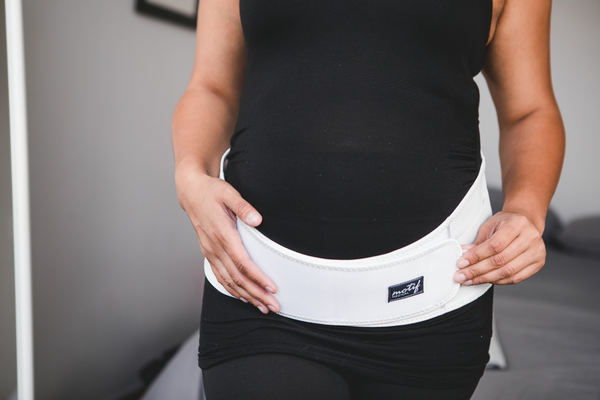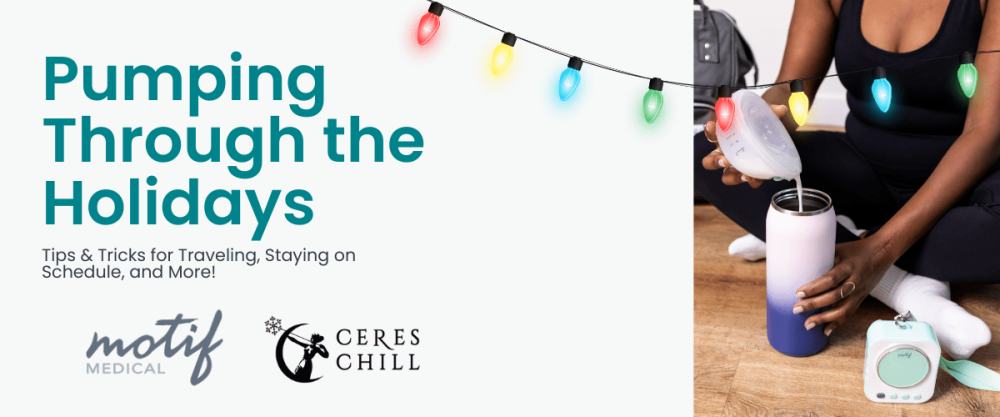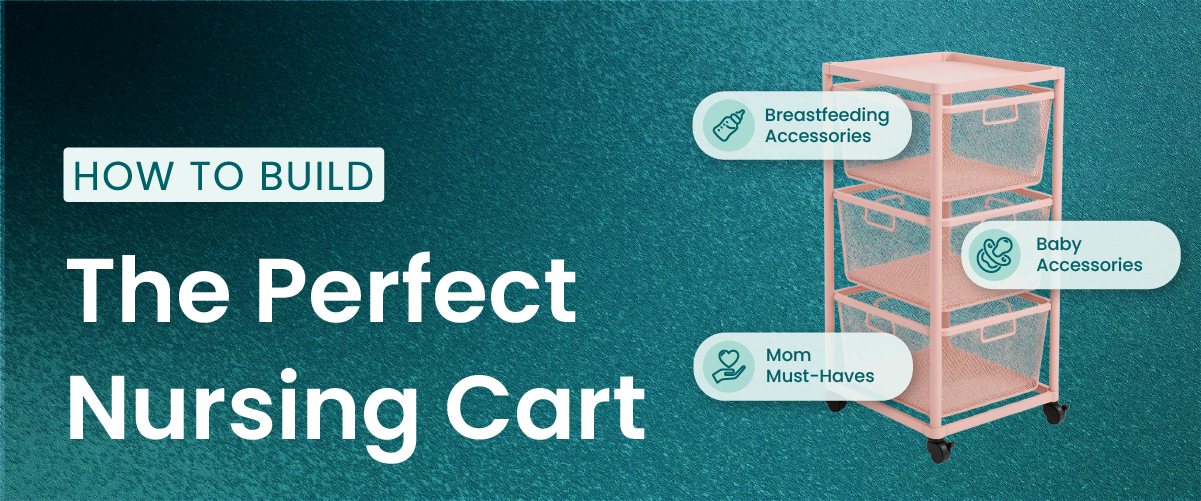When pregnant, you start getting advice from friends, family, neighbors, and even complete strangers! All of it is well-intentioned, but sometimes pregnancy advice and old wives' tales are misleading or even flat-out wrong. Let's tackle 5 of the common pregnancy myths I've heard and see if we can separate fact from fiction.
Myth #1: You Can’t Drink Coffee While Pregnant
You may have had someone tell you that drinking coffee during pregnancy is bad for you and your baby. The truth is that you’re OK to drink up to 200 mg of coffee daily. That amount of caffeine is what you expect in 12 ounces of coffee. Not only is coffee not bad for you, but a recent study in the Journal of the American Medical Association also found that pregnant women who drank up to 200 mg of caffeine per day had a reduced risk of developing gestational diabetes. Caffeine consumption did not affect someone’s risk of having gestational hypertension or pre-eclampsia (Hinkle et al., 2021). So it’s totally fine to enjoy a cup of coffee while you’re pregnant! But do practice moderation. A Venti coffee from Starbucks is 20 to 24 ounces, so stick with the smaller sizes while pregnant.
Myth #2: Small Baby Means Easier Labor
No one knows why some people have an easier time giving birth, but as someone who has been at over 500 births, I can say that giving birth is never easy. Even if the labor is shorter, even if the baby is smaller, even if it all goes like you hoped it would, it’s called labor for a reason! Your body works hard, and while it can be a rewarding and empowering experience, it takes a lot of effort!
It might seem reasonable to expect that a smaller baby will mean you’ll have easier labor, but the size of your baby is not the only aspect that affects your labor. Several factors influence how the course of labor progresses, how the birthing person experiences the contractions or waves, how long you have to push, and even if you experience vaginal tearing. Some of those things are:
Baby’s position: If your baby has their head cocked to one side, if they have their hand up by their face, or if they aren’t able to get into the optimal position for birth, it can affect the progress of labor and make decent and pushing more difficult.
Your pelvic alignment: As your baby works to be born, they must navigate through the space between your pelvic bones. If your hips, tailbone, or sacrum are out of alignment, it can make it more challenging to give birth
Your pelvic floor: As baby gets lower in your pelvis, they will come in contact with the muscles, ligaments, and connective tissue that support all of your abdominal organs—your pelvic floor. Some people have tightness on one side or all of their pelvic floor. When this happens, it makes it more likely for the baby to be in a less-than-ideal position and can take pushing longer, too.
Your mental space: Birth is a very vulnerable time, and the hormones that control the flow of labor are very private hormones—which makes sense because you have an innate need to protect yourself and your baby! The same hormones that cause labor contractions also fuel an orgasm. Imagine trying to have an orgasm in a place where you don’t feel safe or supported—most of us would find that difficult! If you are uncomfortable or have people around you who don’t support you, are scared, or don’t trust your birth team, it can prolong labor as your body will be trying to keep baby inside until you are in a safe space. When giving birth, you need to relax, soften, and let your body do the work of childbirth. If you cannot do that, labor can be longer and harder.
The size of your baby: I’m going to list this one because the size of your baby can impact labor, particularly the pushing phase. If you have a bigger baby, pushing them out can take more effort. But I don’t think this factor has as big of an impact as the other items listed above. I’ve seen women work hard to push out a 6-pound baby, and I’ve seen 11-pound babies slide right out. There are so many other things that will impact how your birth goes!


Myth #3: You Can’t Workout While Pregnant
This couldn’t be more wrong! You WANT to work out while you’re pregnant. When you are expecting, exercising for 30 or more minutes every day is good for your overall health and well-being and your baby’s future health and well-being! Walking 30 minutes a day can reduce your risk of developing pregnancy complications like gestational diabetes, pre-eclampsia, gestational hypertension, and excess weight gain People who exercise are less likely to experience heartburn, leg cramps, constipation, and insomnia, and it can help improve your mental health. Regular exercise during pregnancy also enables a smoother postpartum recovery, so that’s another added wellness benefit!
If you previously had an exercise routine that you loved, keep doing that after finding out you’re pregnant. You’ll need to modify some movements as your body changes throughout pregnancy. It can be beneficial to work with a trainer who can safely guide people through exercises during pregnancy. But also listen to your body. If you are doing a movement that suddenly feels weird or wrong, take it as a sign from your body that you need to stop doing it until after giving birth. The same goes for running. Most runners find that they can keep running until sometime in the late second trimester or early third trimester. Whenever running becomes uncomfortable, don’t try to push through it. Listen to what your body is saying and take a break until at least 12 weeks postpartum.
If you didn’t engage in physical activity before you got pregnant, now is a great time to start! There are many wonderful health benefits for you and your baby when you exercise during pregnancy, but you’ll also be setting yourself up for a smoother birth. Regular exercise helps prevent tight muscles and tissues that can affect the baby’s position and lead to longer, more complicated deliveries. Prenatal yoga can be a good place to start, but my favorite recommendation is to go outside and walk. Walking briskly for 30 minutes to get your heart rate up daily will bring all the above-listed health benefits and help you maintain a low-risk, healthy pregnancy.
There are some situations in which you would want to avoid exercise. For example, consult with your physician before you exercise if you have placenta previa, placental abruption, severe cardiovascular issues, severe pre-eclampsia, or cervical insufficiency.
Myth #4: Morning Sickness Only Happens in the Morning
Don't we wish?! I don't know who came up with the name morning sickness, but nausea and vomiting, which is so common in the first trimester of pregnancy, can happen at any time and sometimes lasts all day. People who experience nausea during pregnancy are likely to experience it in the morning, but it also tends to peak in the evening (Gadsby et al., 2020). These increased times of upset stomach are likely caused by rising and falling hormone levels that happen throughout the day. Some of the old wives' tales say that a baby's gender can make you have more morning sickness, but the truth is that many pregnant women feel like their all-day queasiness is minimized by someone calling it "morning sickness," since they struggle to keep anything down at any time of day. Nausea can be triggered by low blood sugar, certain smells, or even being hungry. The good news is that most pregnancy-related nausea improves around 12 weeks.


An extreme form of nausea and vomiting can happen during pregnancy, called hyperemesis gravidarum. There isn't a set requirement to be diagnosed with this issue, but it is diagnosed by an inability to keep yourself fed and hydrated. Hyperemesis gravidarum can affect the health of the mother and the developing fetus, so if you are unable to keep food and drink down all day long, please get in touch with your healthcare provider to get the care and assistance that you and your baby need.
Myth #5: Cocoa Butter Prevents Stretch Marks
Unfortunately, cocoa butter is not an effective way to prevent stretch marks. I'm sure there have been studies on olive oil, almond oil, cocoa butter, coconut oil, and more, but researchers haven't found a reliable way to prevent stretch marks from forming during pregnancy. However, all the above oils and Vitamin E oil can help keep your skin moisturized. So even if stretch marks start to form, they will be less uncomfortable when you regularly apply oil or body butter to your abdomen. Nutrition and hydration also play a role in the formation of stretch marks, so if you're concerned about them, ensure you're eating a whole foods-based diet and drinking adequate amounts of water daily.
I hope this has helped set the record straight about some frequently heard pregnancy myths. Hopefully, the next time you're told something you can or can't do during pregnancy, you'll remember that unsolicited advice is not necessarily true. Make sure you talk to your ob-gyn or healthcare provider about any questions or concerns.
Gadsby, R., Ivanova, D., Trevelyan, E., Hutton, J. L., & Johnson, S. (2020). Nausea and vomiting in pregnancy is not just 'morning sickness': data from a prospective cohort study in the UK. Br J Gen Pract, 70(697), e534-e539. https://doi.org/10.3399/bjgp20X710885
Hinkle, S. N., Gleason, J. L., Yisahak, S. F., Zhao, S. K., Mumford, S. L., Sundaram, R., Grewal, J., Grantz, K. L., & Zhang, C. (2021). Assessment of Caffeine Consumption and Maternal Cardiometabolic Pregnancy Complications. JAMA Netw Open, 4(11), e2133401. https://doi.org/10.1001/jamanetworkopen.2021.33401
Information provided in blogs should not be used as a substitute for medical care or consultation.







